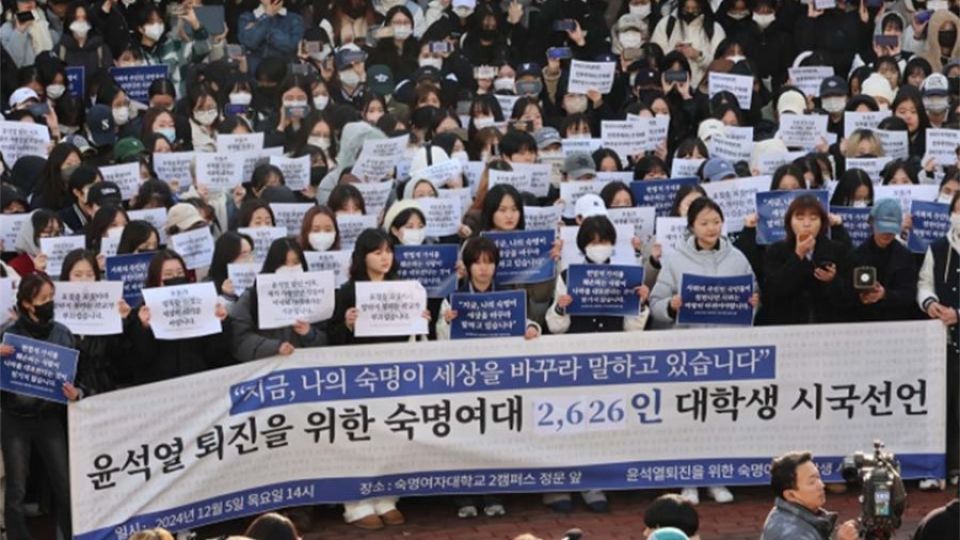December 11, 2024
MANILA – Thanks brooooo. A dream has come true!” replied my Syrian friend, just hours after the collapse of the Assad regime. A medical doctor who had helped countless refugees throughout the years under the auspices of the United Nations, he had spent years behind bars and had been subjected to unspeakable torture by the former regime. Throughout his 20s, he witnessed more horror and tragedy than most humans throughout their entire lives. But he is also a young and newlywed man brimming with hope for a better future—for his once-beautiful country can, if given the chance, become great again.
The fall of the Assad regime has, predictably, generated mixed reactions. After all, the half-a-century-old Assad dynasty had generated a degree of stability and prosperity until the 2010 to 2011 Arab uprisings and, in more recent years, was the ”known devil” for regional actors.
The new supremo of Syria, however, is Abu Mohammed al-Golani, a jihadist who spent time in the inner circles of al-Qaida before ”moderating” his image and ”nationalizing” his mission as the leader of the Hayat Tahrir al-Sham (HTS) forces. Born as Ahmad al-Sharaa in Saudi Arabia to Syrian parents, he formerly led the al-Nusra front, the Syrian branch of al-Qaida, and displayed his independent streak by defying calls to be merged into what would later become the “Islamic State” under the leadership of Abu Bakr al-Baghdadi.
After years of frozen conflict, with both Russia and Iran effectively bailing out the Assad dynasty, the Syrian regime instantaneously crumbled in the face of al-Golani’s blitzkrieg offensive. With the Assad regime cut off from its bailiwick in Lattakia and Alawite coastal regions following the fall of Homs, the fall of Damascus became an inevitability. In just over a week, al-Golani beat even Taliban’s lightning record in toppling a foreign-backed regime.
“Syria deserves a governing system that is institutional, no one where a single ruler makes arbitrary decisions,” the former al-Qaida-affiliate leader told CNN last week. During his appearance at the landmark Umayyad Mosque in Damascus hours into the downfall of the Assad regime, al-Golani declared: “Our message to all the sects of Syria is that … Syria is for everyone.”
As astute observers such as Charles Lister have argued, however, both al-Golani’s military victory and ”moderated” image invite scrutiny. To begin with, the Assad regime—notorious for its corruption, brutality, and narco-politics—was thoroughly hollowed out after a decade of brutal civil war. It had little chance of long-term survival once its chief patrons, Russia and Iran, shifted their focus to other strategic fronts amid the ongoing conflicts from Ukraine to Gaza.
Meanwhile, the HTS leadership, known for its iron-fist rule throughout its former territories, has every reason to present a more ”moderate” image to both consolidate support in multi-sectarian Syria and crucially win international recognition despite its ”terrorist” designation.
As if the Syrian upheaval wasn’t historic enough, last week saw another surreal development: the declaration of martial law in one of the world’s most prosperous democracies. Confronting political sterility and collapsing approval ratings, President Yoon Suk-yeol went for the nuclear option, just to see his short-lived martial law stymied by fierce resistance from both the Parliament, including his own party mates as well as South Korea’s fearless civil society, who collectively resisted military forces until the president backed down.
Not long after, South Korean prosecutors arrested former defense minister Kim Yong-hyun on charges of treason; Yoon narrowly avoided impeachment while mulling potential resignation. In both Syria and South Korea, popular resistance prevailed against the forces of dictatorship. The path ahead, however, is filled with uncertainty.
Lest we forget, the past year was filled with countless shocks, including the victory of Donald Trump, the tit-for-tat missile exchanges between Middle East’s two most powerful nations, and the all-out political war between the House of Duterte and the House of Marcos. The old order—along with its underlying assumptions—is perishing, while a new order is yet to crystalize. But as the great Italian thinker Antonio Gramsci counseled: one should combine the “pessimism of the intellect,” namely taking into account hard facts and troubling imponderables with the “optimism of the will,” namely the courage to fight for freedom and a better tomorrow.


